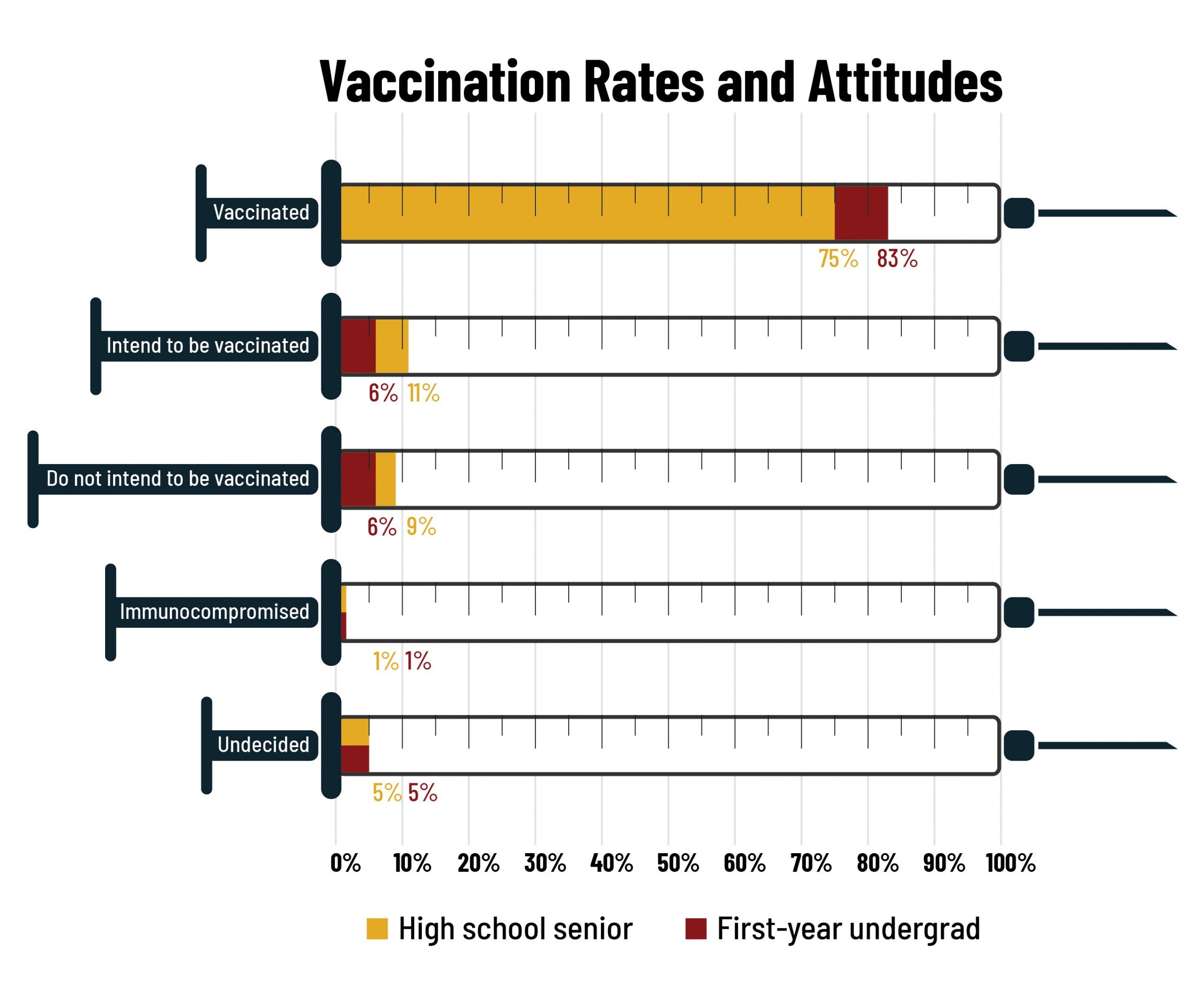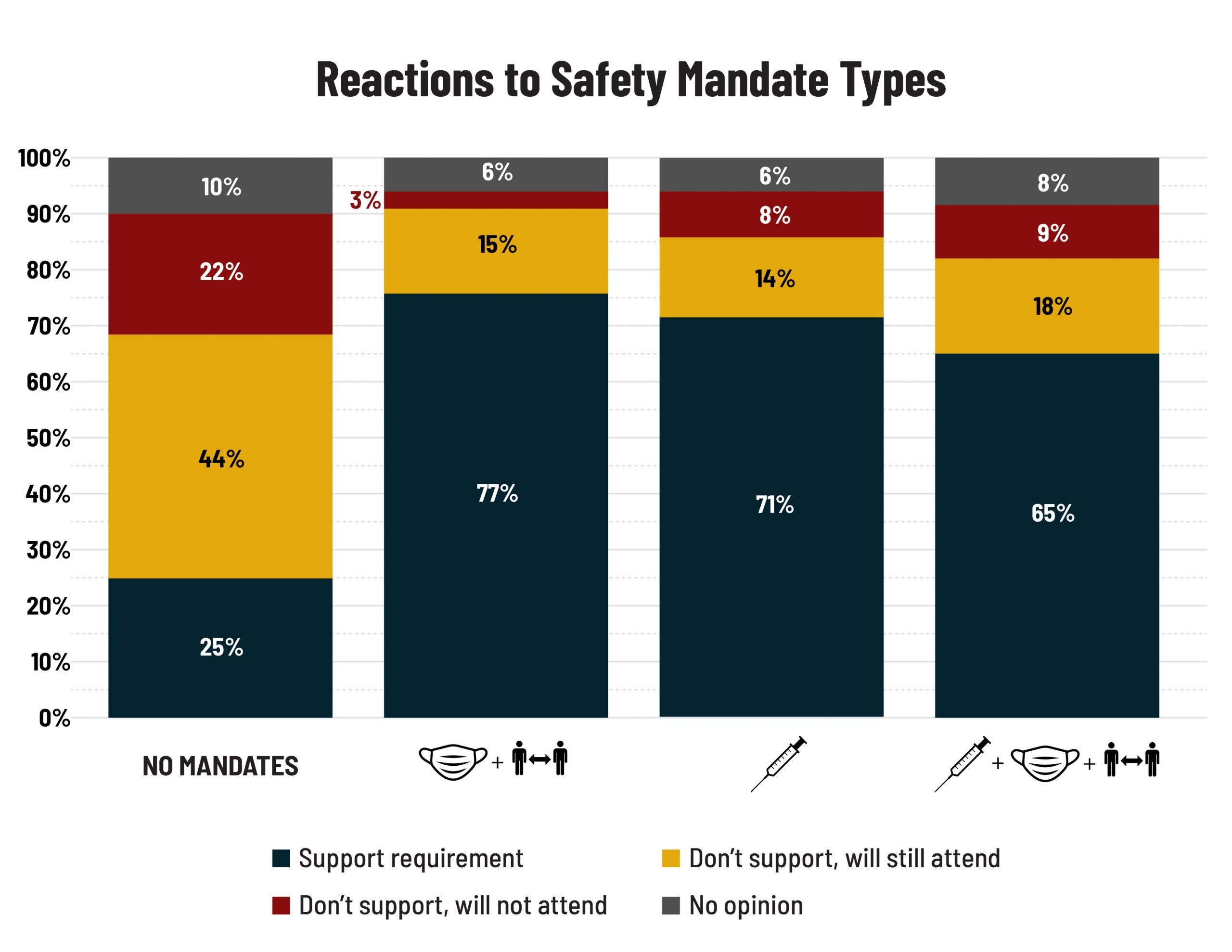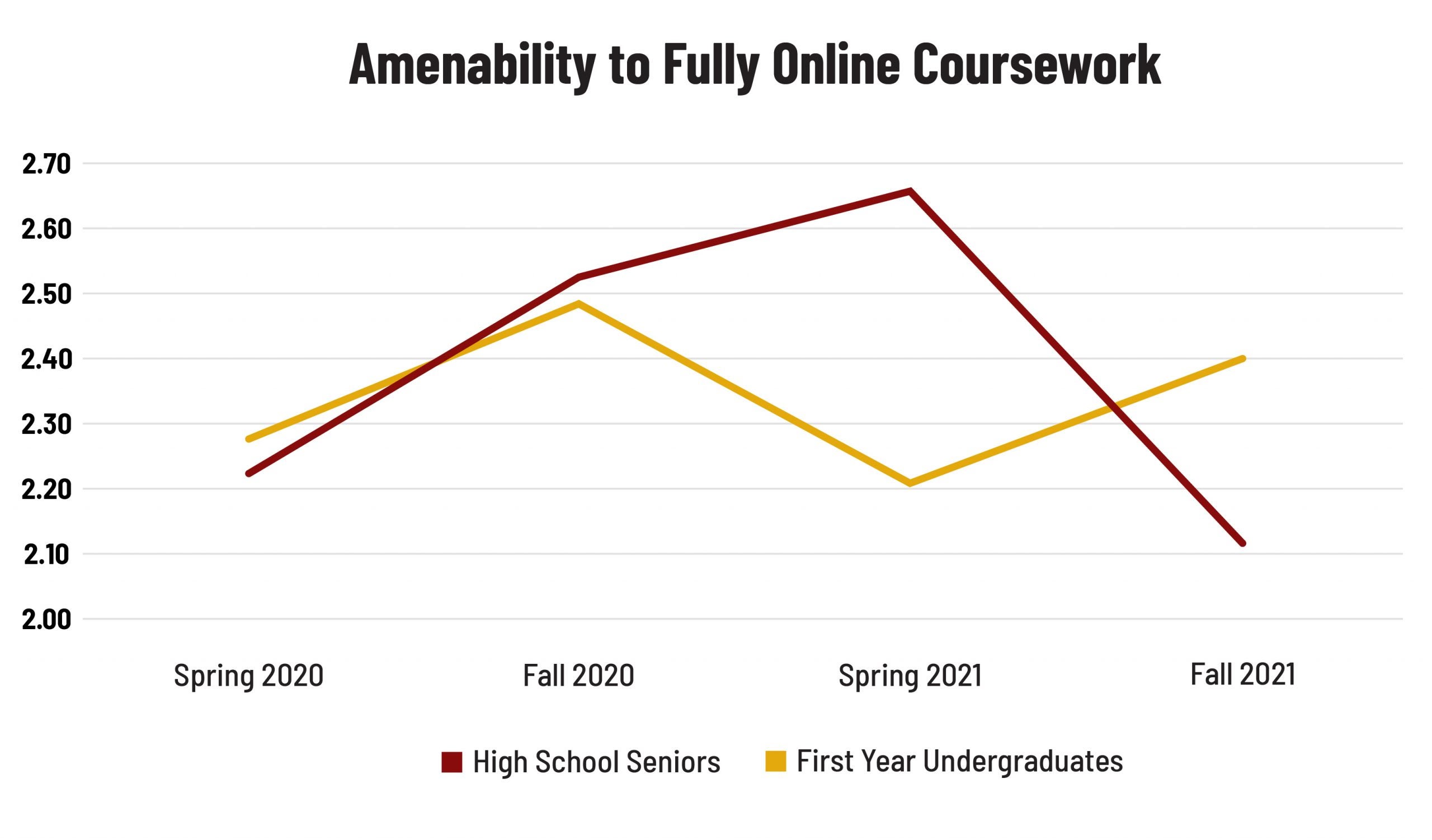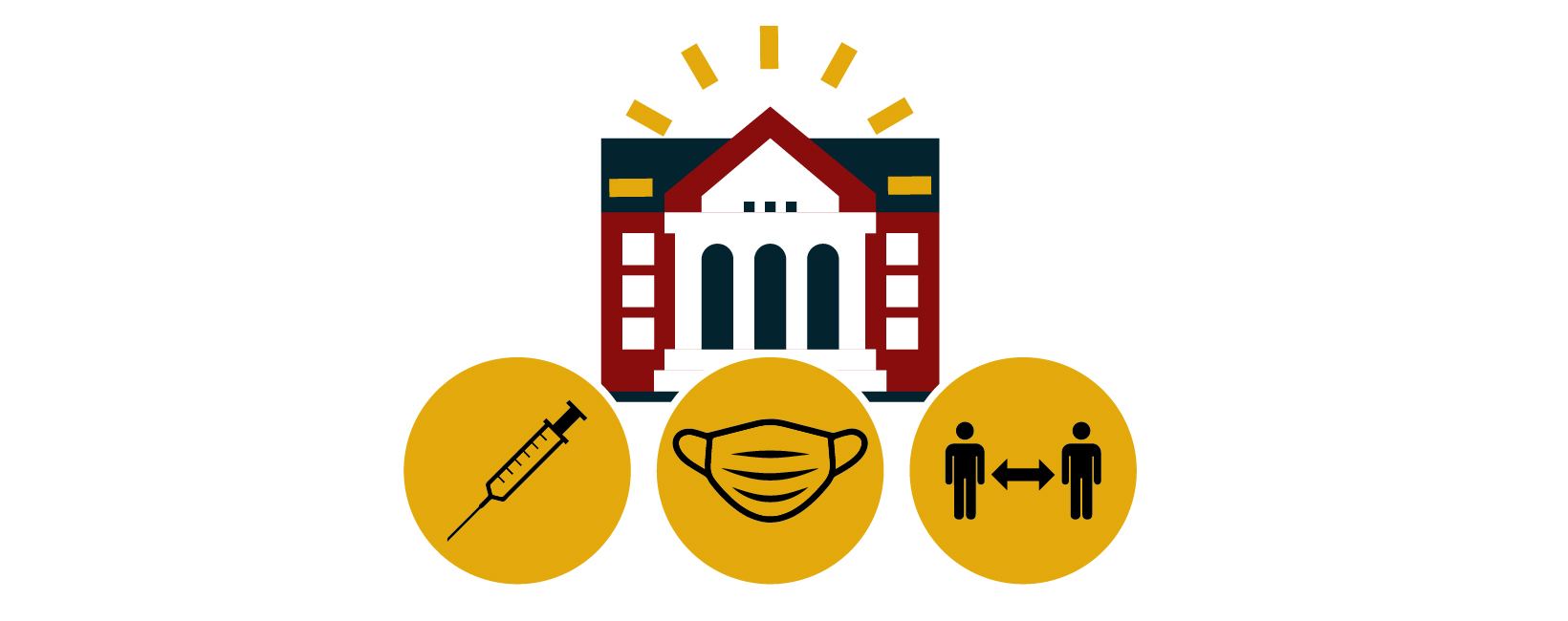 Sep 30, 2021
Persona
Sep 30, 2021
Persona
Student Survey: How Do Students Feel About Returning to Campus Amid the Surge of the Delta Variant?
Schools have opened their doors for the new term, but uncertainly lingers. Earlier this year, with widespread vaccine availability and lower COVID-19 case rates, many felt a cautious optimism toward a return to normalcy. Masking and social distancing became more of a suggestion or courtesy than policy. But as the summer crested toward fall, news emerged of a new, more contagious version of the virus: the Delta variant. As Delta cases surged, the FDA approved the Pfizer-BioNTech vaccine. These events have caused schools, colleges, and universities to hastily reassess their plans to safely return to on-campus learning. But how do the students feel? We asked more than 1,700 current high school seniors and 1,000 students entering their first year of undergrad about vaccines, mandates, and online coursework. Here’s what we found.
Most students are vaccinated, or they intend to be
Seventy-five percent of high school seniors and 83% of first-year college students say they’ve been vaccinated. Another 10% and 6%, respectively, say they plan to be vaccinated soon. Nine percent of high school seniors and 6% of first-year college students say they do not plan to get vaccinated, and 5% of our respondents said they haven’t decided if they’re going to get the vaccine or not.

- Political views are the strongest predictor of vaccination status. Just 31% of “strongly right”–leaning students have gotten a vaccine. This percentage steadily increases with those leaning more left: 93% of “strongly left”–leaning students say they’ve been vaccinated.
- Vaccination rates are consistent across genders.
- Vaccination rates are highest among Asian students (92%) and Hispanic/Latin students (80%). Rates are lowest among American Indian/Alaskan Native students (58%) and those who identified as “other” racially (61%).
- FDA approval doesn’t change much for those who don’t want the vaccine; a full 80% say it has no effect on their confidence in their decision to sit it out. Less than 10% of the remainder of those who say they won’t get the shot said approval made them less confident in their decision.
- Of those who intend to get the vaccine but haven’t yet, nearly 73% said FDA approval made them more confident in their decision to get vaccinated.
Students are concerned about the COVID-19 Delta variant
Seventy-five percent of them say they’re somewhat or very concerned, while about 10% aren’t worried about it.
- First-year college students are less concerned about Delta than high school seniors are. Concern about the Delta variant is much higher among those who are vaccinated than those who say they won’t get the vaccine. Generally, the unvaccinated feel neutral toward Delta.
- Political views matter. The more conservative a student is, the less concerned they are about the Delta variant. Students identifying as “strongly right”–leaning scored an average of 3.33 on a 5-point scale in which a higher score indicates less concern. In contrast, “strongly left”–leaning students scored an average of 1.55. The average score of all students was 2.07.
Generally, students support mandated COVID-19 precautions
High school seniors and first-year college students responded very similarly to our mandate scenario questions, so they are presented in aggregate below.

- Vaccinated students have the highest support for all three mandate scenarios. Interestingly, those who say they intend to get the vaccine had high support—nearly 78%—for mask and social distancing requirements, but that number drops to 57% for either scenario requiring vaccines. A quarter of vaccinated students said they’d look for other school options if their school didn’t have any precautions mandated.
- Those who were undecided about getting the vaccine had the highest support for the “no mandates” option at 57%. Only 17% of undecideds support a vaccine and mask requirement.
- Nearly 75% of students who do not intend to get vaccinated support the “no mandates” option. Less than 5% of them support the vaccine and mask requirement option, though about 23% said they’d still attend. About two-thirds of students who do not intend to be vaccinated say they’d look for other school options if either a vaccine-only mandate were imposed or if a mask and vaccine mandate were imposed.
Amenability to online-only courses is waning
We’ve been tracking interest in taking the majority of coursework online since the beginning of the pandemic. When surveyed this spring, high school seniors (the Class of 2022) were more amenable to online coursework, with an average of 2.66 on a 5-point scale, where 1 is “would not consider” and 5 is “absolutely would.” This has dropped substantially to 2.11. For the Class of 2021—current first-year college students—acceptance has actually increased slightly from when they were surveyed in the fall. Despite these trends, more than a third of high school seniors and 29% of first-year college students say they would not consider taking the majority of their coursework online.

- Consistent with our previous findings, students of color and students identifying as women are more amenable to fully online coursework than their white peers identifying as men.
- Vaccine status has no bearing on amenability to fully online coursework. However, political affiliation and concern about the Delta variant do. Those who identify as “slightly right leaning” are the least interested in online coursework, with a mean score of 1.94. These students are less interested in online coursework than their more conservative counterparts are (2.05). In contrast, “strongly left”–leaning students had a mean score of 2.38.
What can colleges and universities conclude with this information?
High school seniors and current first-year students are eager to return to campus, and most students offer their outright (or begrudging) support of mandated COVID-19 protocols on campus. Failing to require safety protocols will result in more than 20% of students rethinking on-campus learning at their chosen institution. The students we surveyed boast far higher vaccination rates than that of the general population of the United States, even when controlling for region. Students recognize the value of an in-person education and are willing to follow institutional protocols to keep each other safe.
For more surveys, research, and insight into the pandemic’s effect on colleges and universities, visit our Higher Education COVID-19 Resources page.
